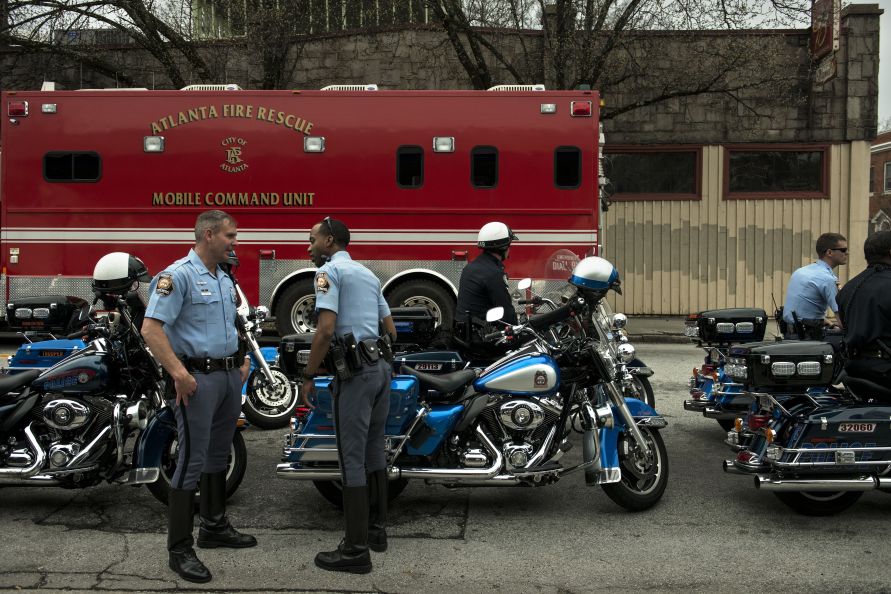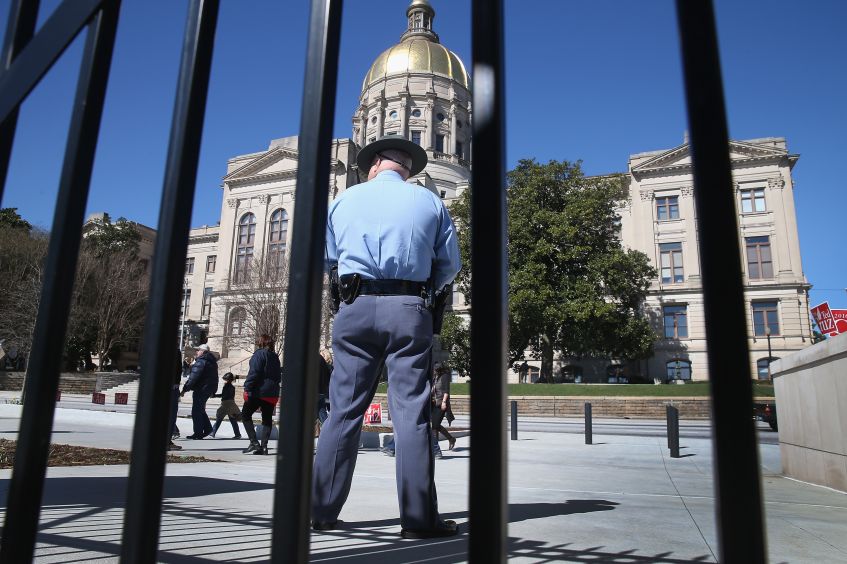Calling the police can be one of the most significant decisions someone makes in their life. Whether it's an emergency, a safety concern, or simply a need for assistance, understanding why people call police 12 is essential. In this article, we will explore the various reasons people reach out to law enforcement and the importance of making the right call when necessary. So, buckle up and let's dive into the nitty-gritty of this crucial topic.
When it comes to public safety, the role of the police is undeniable. People call police 12 for a wide range of reasons, from life-threatening emergencies to minor inconveniences. Understanding these reasons helps us appreciate the complexity of their job and the importance of responsible decision-making.
This article will not only shed light on the reasons behind these calls but also provide valuable insights into how we can work together to create safer communities. Let's get started!
Read also:Alinity Onlyfans A Comprehensive Guide To Understanding The Rise Of Alinity In The Digital Age
Why Do People Call Police 12? A Look at the Primary Reasons
One of the main reasons people call police 12 is to report emergencies. These emergencies can range from serious crimes like burglaries and assaults to medical emergencies that require immediate attention. In situations like these, every second counts, and reaching out to the authorities is often the best course of action.
Another common reason is to seek help in non-emergency situations. People might call police 12 for noise complaints, lost pets, or even to report suspicious activities in their neighborhoods. While these may not seem as urgent as emergencies, they still play a vital role in maintaining community safety.
Emergency Situations That Prompt a Call
Emergency situations are perhaps the most critical reason why people call police 12. These scenarios often involve immediate threats to life, property, or public safety. For instance, if someone witnesses a crime in progress or is a victim of one, contacting the police is the first step toward resolution.
- Crimes in progress
- Medical emergencies
- Fire hazards
- Car accidents
Each of these situations demands swift action, and the police are trained to handle them efficiently. Their role in these moments cannot be overstated, as they provide the necessary support and protection to those in need.
The Importance of Calling Police 12 for Non-Emergencies
While emergencies dominate the conversation around why people call police 12, non-emergency situations also play a significant role. These calls often involve issues that, while not life-threatening, still impact the quality of life in a community. From noise complaints to reporting suspicious individuals, these calls help the police maintain order and ensure everyone feels safe.
For example, if someone notices unusual activity in their neighborhood, such as a stranger loitering around homes, calling police 12 can prevent potential crimes. Similarly, reporting abandoned vehicles or vandalism helps keep the community clean and secure.
Read also:Jenna Ortega Leaked Separating Facts From Fiction
Community Policing and Its Role in Non-Emergency Calls
Community policing is a strategy that emphasizes collaboration between law enforcement and the community. By encouraging residents to call police 12 for non-emergency situations, officers can proactively address issues before they escalate. This approach fosters trust and strengthens the relationship between the police and the public.
Some examples of non-emergency situations that warrant a call include:
- Noise disturbances
- Lost or found pets
- Suspicious activities
- Public nuisances
By addressing these concerns, the police contribute to a safer and more harmonious environment for everyone.
Understanding the Role of Police in Emergency and Non-Emergency Calls
When someone calls police 12, they expect a swift and appropriate response. The role of the police extends beyond simply arriving at the scene; it involves assessing the situation, ensuring safety, and taking the necessary actions to resolve the issue. Whether it's an emergency or a non-emergency, the police are trained to handle a wide variety of scenarios.
In emergencies, their primary focus is on saving lives and preventing further harm. This may involve coordinating with other emergency services, such as paramedics or firefighters, to provide comprehensive support. In non-emergency situations, their role shifts to more community-oriented tasks, like mediating disputes or offering guidance.
How Police Are Trained to Handle Calls
Police officers undergo extensive training to prepare them for the diverse situations they encounter on the job. This training includes not only physical skills but also communication and problem-solving techniques. By equipping officers with the tools they need to handle both emergencies and non-emergencies, the police can better serve their communities.
Some key aspects of their training include:
- Conflict resolution
- Crisis intervention
- Community engagement
- Legal procedures
This comprehensive approach ensures that officers are prepared to handle any call they receive, no matter the nature of the situation.
Statistics and Trends in Police Calls
Understanding the reasons why people call police 12 is incomplete without looking at the data. According to recent studies, a significant portion of calls to law enforcement are related to non-emergency situations. This highlights the importance of having a dedicated non-emergency number to alleviate the burden on emergency lines.
For instance, a report by the National Center for Victims of Crime found that:
- 30% of calls were related to noise complaints
- 20% involved suspicious activities
- 15% were for lost or found pets
- 10% pertained to traffic issues
These statistics underscore the need for effective communication and resource allocation within law enforcement agencies.
The Impact of Technology on Police Calls
Advancements in technology have significantly impacted how people interact with law enforcement. From mobile apps to online reporting systems, technology has made it easier than ever to reach out to the police. These tools not only streamline the process but also allow for more accurate and efficient communication.
For example, many departments now offer mobile apps that allow residents to report incidents, upload photos, and track the status of their reports. This level of convenience encourages more people to call police 12 when needed, ultimately leading to safer communities.
Common Misconceptions About Calling Police 12
Despite the importance of calling police 12 when necessary, there are still misconceptions that deter some people from reaching out. One common belief is that calling the police for non-emergency situations is a waste of resources. However, this couldn't be further from the truth. Every call contributes to maintaining community safety and order.
Another misconception is that the police are only there to deal with serious crimes. While their primary role is to enforce the law, they also play a vital role in supporting the community through various services. By understanding these misconceptions, we can encourage more people to call police 12 when appropriate.
Addressing Stigma Around Calling the Police
There is often a stigma associated with calling the police, especially in certain communities. Some people fear retaliation or judgment, while others may feel uncomfortable involving law enforcement in their personal issues. Breaking down these barriers is crucial for fostering trust and cooperation between the police and the public.
Community outreach programs and education initiatives can help address these concerns. By promoting open communication and transparency, law enforcement agencies can build stronger relationships with the communities they serve.
How to Make an Effective Call to Police 12
Knowing how to make an effective call to police 12 can make all the difference in how your situation is handled. When calling, it's essential to remain calm and provide clear, concise information. This includes details about the location, nature of the incident, and any potential hazards.
Here are some tips for making an effective call:
- Speak clearly and avoid jargon
- Provide your exact location
- Describe the situation in detail
- Answer all questions honestly
By following these guidelines, you can ensure that the police have all the information they need to respond appropriately.
What Happens After You Call?
After you call police 12, the process begins with a dispatcher assessing the situation and determining the appropriate response. Depending on the nature of the call, they may dispatch officers, paramedics, or other emergency services. Once on the scene, the officers will evaluate the situation and take the necessary steps to resolve it.
It's important to remember that the police are there to help, and their primary goal is to ensure everyone's safety. By cooperating with them and providing accurate information, you can help facilitate a smooth and effective response.
Building Trust Between the Police and the Community
Trust is the foundation of any successful relationship, and this is especially true when it comes to the police and the communities they serve. By fostering open communication and promoting transparency, law enforcement agencies can build stronger, more collaborative relationships with the public.
Some strategies for building trust include:
- Hosting community events
- Encouraging citizen feedback
- Implementing accountability measures
- Providing education and resources
By taking these steps, the police can create a more inclusive and supportive environment for everyone.
The Role of Community Engagement
Community engagement plays a crucial role in building trust between the police and the public. By involving residents in decision-making processes and seeking their input on important issues, law enforcement agencies can better understand the needs and concerns of the community.
This collaborative approach not only strengthens relationships but also leads to more effective and innovative solutions to common problems. Ultimately, it's about working together to create safer, more connected communities for all.
Conclusion: Why Calling Police 12 Matters
In conclusion, understanding why people call police 12 is essential for creating safer, more resilient communities. Whether it's an emergency or a non-emergency situation, reaching out to law enforcement when necessary can make all the difference. By fostering trust, promoting transparency, and encouraging open communication, we can work together to build stronger relationships between the police and the public.
So, the next time you find yourself in a situation where calling police 12 is the right decision, don't hesitate to do so. Your action could be the key to resolving the issue and ensuring everyone's safety. And remember, by working together, we can create a brighter, safer future for all.
Table of Contents
- Why Do People Call Police 12? A Look at the Primary Reasons
- Emergency Situations That Prompt a Call
- The Importance of Calling Police 12 for Non-Emergencies
- Community Policing and Its Role in Non-Emergency Calls
- Understanding the Role of Police in Emergency and Non-Emergency Calls
- How Police Are Trained to Handle Calls
- Statistics and Trends in Police Calls
- The Impact of Technology on Police Calls
- Common Misconceptions About Calling Police 12
- Addressing Stigma Around Calling the Police
- How to Make an Effective Call to Police 12
- What Happens After You Call?
- Building Trust Between the Police and the Community
- The Role of Community Engagement
- Conclusion: Why Calling Police 12 Matters


